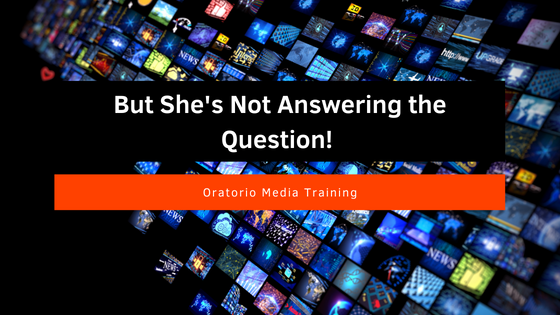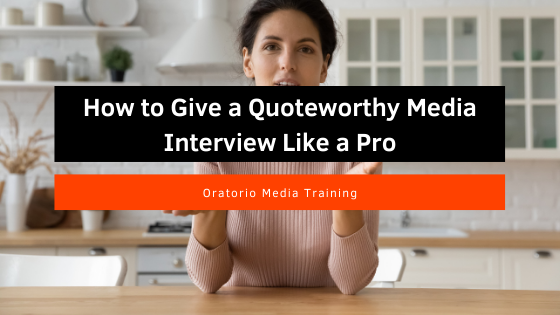News media coverage can be a powerful and low-cost way to build your brand and boost sales - and media training is essential to delivering your key messages with maximum impact.
Journalists are constantly on the lookout for new and engaging stories. When you make yourself available for an interview - and perform well in that interview - it’s a win-win. You’re able to highlight your brand and your messaging, and the reporter can count on you for future commentary in your area of expertise.
Here are five ways media training can prepare you to be a great spokesperson:
1 - Realistic Interview Scenarios
Winging it never works in an interview with a journalist. Practicing with an experienced professional with live cameras and private feedback does. Conducting practice interviews in a studio setting or via remote video prior to going on air live with a journalist prepares you to deliver your messages strongly and manage difficult or challenging questions.
2 - Learning to Deliver Your Message, Come What May
Remember that in a live interview, you don't have much time to make your points, and you want to make them frequently and credibly. That's why it's important to come right out of the gate with your messaging.
Media training prepares you to deliver your key messages right from the start and handle all kinds of questions: informed, uninformed, friendly, hostile, leading, yes-or-no, and everything in between.
3 - Using Your Body Language To Enhance Your Messages
Keeping the audience’s attention is key to delivering your message effectively and to being asked to return for future interviews. The news media favor lively, animated, compelling spokespeople. These on-camera performers use strong, descriptive gestures. They speak passionately, they tell stories, they use props. The audience pays attention – and those in the control room like the results in the ratings. So if you’re interviewed on TV, you don’t want to be a bump on a log. It takes practice to get comfortable with this style and media training gives you the experience on-camera to get it right in advance of your live performance.
4 - Reduce Your Chances of Getting Misinterpreted
Going into your interview without a plan for difficult questions can lead you to say something other than what you intended. Media training helps you to develop clarity around your key messages and give you communication strategies to answer questions clearly, effectively, and in a manner that benefits you while reducing the likelihood of your being misinterpreted.
5 - Use Storytelling Effectively to Captivate Your Audience
People learn best and retain more information when it’s delivered through a story. Choosing the best stories to illustrate a point and then delivering them in a way that gets your message across is a skill that takes time to develop. Media trainers have decades of experience doing just that. Not only can they help you choose the best and most relatable stories that drive your message home or help your audience understand policy decisions in a positive light, they can also help you craft the story so that it’s succinct and memorable.






